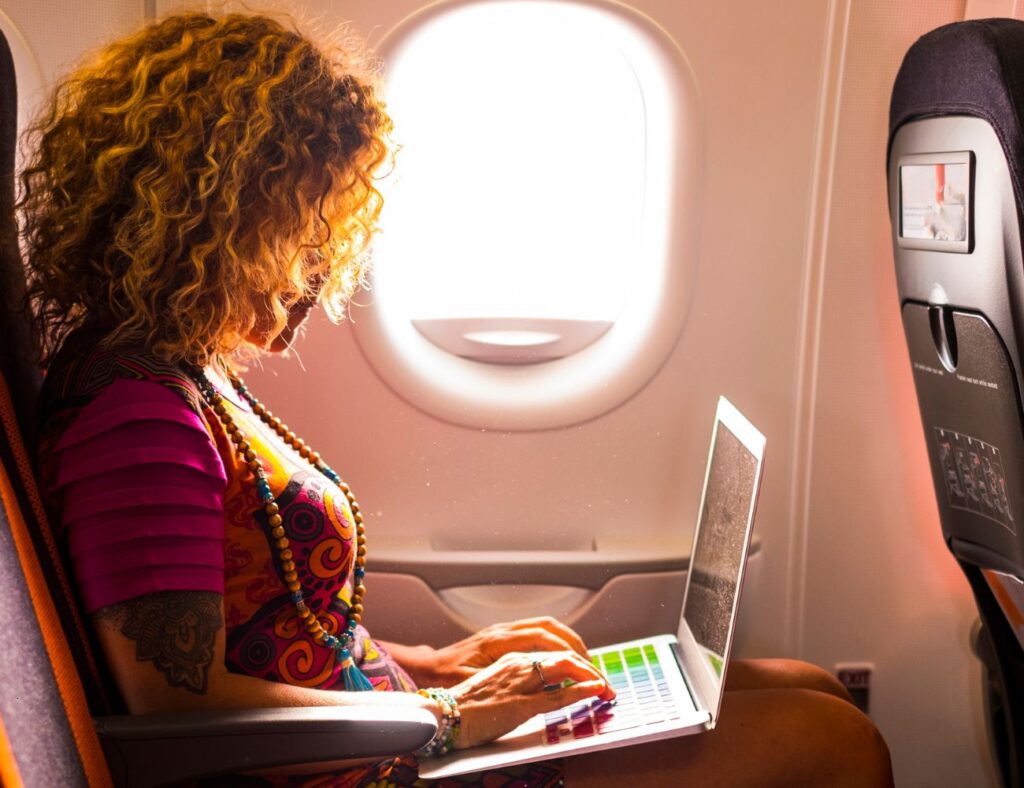Elevating Comfort and Convenience: The Role of Technology in Modern Air Travel
Modern air travel is about more than just reaching your destination; it’s about enjoying the journey. From advanced in-flight entertainment systems to AI-powered customer service, technology is revolutionizing the passenger experience. In this blog, we delve into the latest tech trends enhancing comfort and convenience, making every flight a memorable experience.
The aviation industry is continuously evolving to enhance the passenger experience, leveraging cutting-edge technology to make air travel more comfortable, convenient, and enjoyable. Here are some of the most impactful technological advancements shaping the future of flying:
1. Advanced In-Flight Entertainment Systems Modern in-flight entertainment systems offer passengers a diverse array of movies, TV shows, music, and games, all accessible through high-definition touchscreens. Personalized content recommendations, virtual reality experiences, and interactive features are setting new standards for entertainment at 30,000 feet.
2. High-Speed In-Flight Connectivity High-speed Wi-Fi has become a necessity rather than a luxury for today’s travelers. Enhanced connectivity allows passengers to stay connected, work, and stream content seamlessly throughout their flight. Airlines are investing in advanced satellite technology to provide reliable, high-speed internet access, transforming how passengers use their in-flight time.
3. AI-Powered Customer Service Artificial intelligence (AI) is revolutionizing customer service in aviation. AI-driven chatbots and virtual assistants provide instant support, answer queries, and assist with booking changes, enhancing efficiency and passenger satisfaction. Additionally, AI algorithms analyze passenger preferences and behavior to offer personalized recommendations and services.
4. Biometric Boarding Biometric technology is streamlining the boarding process, reducing wait times, and enhancing security. Facial recognition systems allow passengers to board flights with a simple scan, eliminating the need for boarding passes and IDs. This technology not only speeds up the process but also provides a seamless and hassle-free experience.
5. Smart Seats and Cabins Airlines are introducing smart seats equipped with features like adjustable lumbar support, temperature control, and massage functions. Some seats also offer wireless charging ports and personal device holders. Smart cabins equipped with mood lighting and advanced climate control systems further enhance passenger comfort.
6. Mobile Apps and Digital Wallets Mobile apps have become essential tools for travelers, offering features like mobile check-in, real-time flight updates, and digital boarding passes. Digital wallets integrated into airline apps allow passengers to make purchases, book services, and manage loyalty points effortlessly, enhancing convenience and engagement.
7. Enhanced Health and Safety Measures In response to the COVID-19 pandemic, airlines have adopted advanced health and safety technologies. UV light sanitization, HEPA air filtration systems, and touchless interfaces ensure a clean and safe environment. Real-time health monitoring and contactless temperature checks provide additional layers of protection.

